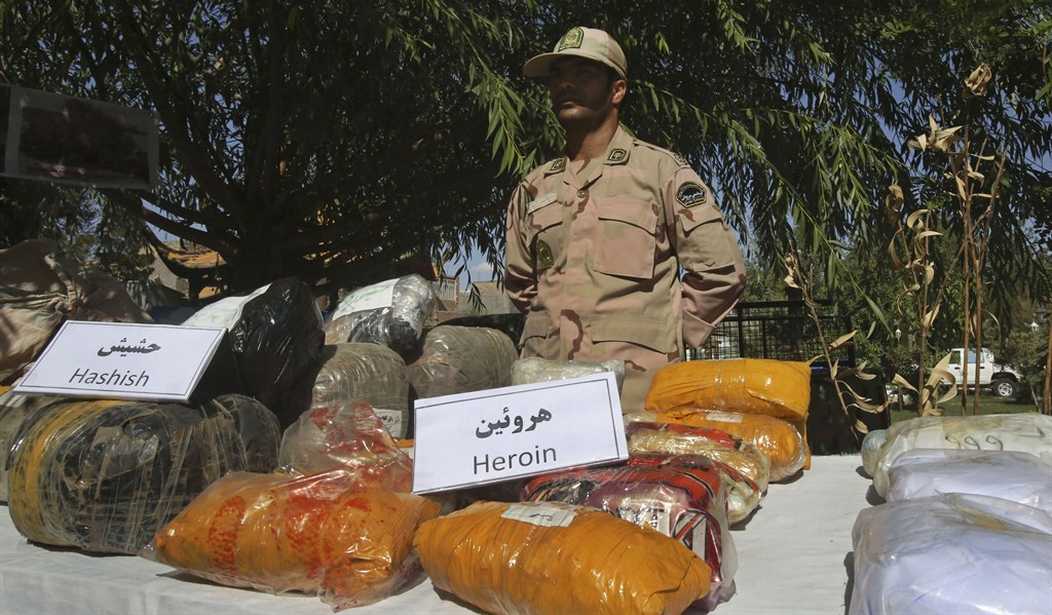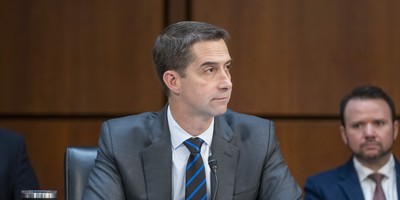The Iranian regime’s involvement in the international drug trade has been known for years. Following the 1979 revolution, Ayatollah Ruhollah Khomenei, founded the Islamic Revolutionary Guard Corps (IRGC), a private army tasked with protecting the Islamic Revolution. It has also played a central role in the international drugs trade, laundering dirty money for gangsters and cartel godfathers, helping the mullahs to overcome the impact of western sanctions, and providing the regime with the means to finance and supply its terrorist proxies. The IRGC controls more than 70 percent of the Iranian economy, pays no tax and is answerable only to the Supreme Leader. For decades, the IRGC and its extra-territorial Quds Force (QF), has provided funds, delivered arms, trained militants, and sponsored proxy wars, supporting Bashar al-Assad in Syria, the Houthi rebels in Yemen, Hamas in Gaza and the Shi’ite militias in Iraq.
The IRGC helped form Hezbollah in Lebanon, which has become a global network involved in various political, criminal, and terrorist activities for over 40 years. Listed as a terrorist organization by many western nations, Hezbollah operates cigarette smuggling networks, money laundering, extortion and drug trafficking across the Middle East, Latin America and the United States. Its involvement in the worldwide cocaine trade is well documented, with senior commanders from the IRGC using the proceeds to finance the regime’s warmongering and international terrorism, while also pocketing some of the lucrative takings.
Hezbollah is Iran’s most important and longest-standing non-state partner. In the wake of the assassination of IRGC-QF commander Qassem Soleimani, on the orders of President Donald Trump, Hezbollah has taken a leadership role in coordinating Shi’ia militant proxies throughout the Middle East. The group has mounted repeated cross-border rocket and mortar attacks from Lebanon on Israel during the current Gaza war, and under the strict control of the IRGC, has played a key role in Syria maintaining Bashar al-Assad’s repressive regime. Hezbollah is closely involved in the illicit cocaine trade in Colombia, Perú and Bolivia. This region has become a hub for their global cocaine operations, as well as a new and important source of funding for Hezbollah.
The mullahs’ regime is also closely involved in ongoing narco-battles in Jordan. As part of its multifront offensive against the US and its Middle East allies, Iran-backed militias and narco-traffickers are seeking to destabilize Jordan, which they regard as a friend of America, by infiltrating the country with huge quantities of the amphetamine-like drug captagon, as well as arms and explosives. The highly addictive captagon has become the drug of choice in the Middle East and Jordanian troops have regularly clashed with smugglers on the Syrian border. Amman has ordered repeated Jordanian air force strikes on warehouses and the homes of suspected drug dealers in Syrian villages. After dozens of narco-traffickers with explosives and 5 million captagon pills were arrested at the Syrian border last December, the former Jordanian minister Samih Maayteh blamed the Iranian regime directly, saying “It’s Iran sponsoring these militias. These are hostile military actions against Jordan on its territory.”
Recommended
Bashar al-Assad’s regime is playing a key role in the captagon trade alongside Hezbollah. The US Treasury Department noted last year that Assad and his allies “have increasingly embraced the production and trafficking of captagon to generate hard currency.” Hezbollah facilitates and profits from drug trafficking operations. Its members are reportedly supervising a new captagon factory in eastern Syria that the IRGC helped establish last year.
Meanwhile, there is growing evidence that the Iranian regime is working closely with the Taliban boosting the Afghan drug trade. More than 80 percent of the world's illegal drugs are produced in Afghanistan and a good deal passes through Iran. The US Treasury Department has in the past sanctioned specific IRGC commanders for suspected involvement in drug trafficking. Through these sinister links, the theocratic regime has been able to exploit international organized crime networks, turning them into a political force that runs terrorist activities around the world, while circumventing transnational scrutiny and economic sanctions. The billions of dollars flowing into Iran from these drug cartels, has provided the Iranian regime with the means to finance and supply its proxies like Hezbollah, Hamas, the Houthis and the Iraqi militias, bolstering their destabilizing agendas, promoting their ideological objectives and sowing chaos on a global scale. The mullahs also use these tactics abroad as a necessary distraction from the rising turbulence at home which threatens to overthrow their corrupt and vicious regime.
Tehran is happy to provide money laundering facilities for the drug barons in exchange for criminal services overseas, including assassinations, bombings, and kidnappings. According to the US Treasury Department: “The MOIS and Iran’s Islamic Revolutionary Guard Corps (IRGC) have long targeted perceived regime opponents in acts of transnational repression outside of Iran, a practice that the regime has accelerated in recent years. A wide range of dissidents, journalists, activists, and former Iranian officials have been targeted for assassination, kidnapping, and hacking operations across numerous countries in the Middle East, Europe, and North America. The regime increasingly relies on organized criminal groups in furtherance of these plots in an attempt to obscure links to the Government of Iran and maintain plausible deniability.”
Last year, the US Drug Enforcement Agency offered a massive $5 million reward for information leading to the capture of Christy Kinahan Sr. and each of his two sons, Daniel and Christy Jr. They are the Irish leaders of one of the world’s biggest drug cartels, with a base in Kish Island, a tiny Iranian enclave 12 miles off the mainland coast, known as the ‘Pearl of the Persian Gulf’. The Kinahans and other drug barons use the island to launder their billions in dirty drug money and in return, carry out assassinations on behalf of the Ministry of Intelligence and Security (MOIS) and the IRGC. Kish Island is a Free Trade Zone, known as Iran’s Costa Del Sol and while women have to wear headscarves and traditional costumes, the paradise island has a more European feel, with alcohol served in hotels and restaurants and a huge coral beach for snorkelling. It is also beyond the reach of international drug enforcement agencies.
Iran has become a gangster state whose economy is increasingly dependent on the trade in illegal drugs. Civilized nations should treat it like any other Narco State, sever diplomatic relations and support the right of the Iranian people and their resistance to overthrow the mullahs’ evil regime.
























Join the conversation as a VIP Member